I just read an article about negotiating which list the 11 major points to negotiation as outlined by the Charles Karrass, famed negotiation expert. Here is how the article starts – For short-term victories will not create lasting business relationships. Both sides must leave the negotiation table believing that they have gained.
Can you spot the major issues with these ideas?
- Eleven major points are a ton of work and hassle, not to mention time-consuming.
- He implies that negotiating to gain an advantage will lead to short-term This just is not true. Vendors do everything in their power to maximize their margin (See Blog – Lessons from the Sales Side). So, customers should do what they can to minimize their spend.
- Believing? Why bother negotiating at all when you are walking away with a belief? Eleven steps to negotiate belief? Personally, if I am going to spend weeks of work I want to know I got a good deal.
The article is well written and if you negotiate they are very valid points. But, I got stuck on the word “believing.” Then it dawned on me to ask a simple question, how do you know if you got a fair/good deal?
What is your benchmark for knowing if you got a fair deal? Does list price mean anything? Have you ever seen 80% discounts? This just means inflated list prices to give you the illusion of a great deal. If you can’t rely on list price and a discount levels, how can you determine what is a good discount? Did the vendor tell you that you got a great deal? Did it just feel right? Since negotiations were tough and long, you must have gotten a fair price, right? Did you consult with peers, but how do you know they got a fair deal? You went out to RFP, you must have the best price because you asked for best and final pricing. In reality, it is not best and final pricing, it’s the HIGHEST price at which the vendor believes they will win. Are you a large company and assume that your purchase power will get you the best pricing? Are you a small firm and told that only the big companies get larger discounts? I have seen tiny companies get higher discounts than some fortune 500 companies, so company size has nothing to do with getting a fair deal.
So, how do you know if you got a fair deal? Karrass had it right, you must believe you got a good deal because when you negotiate you never know if you got a good deal. But, there is a way to determine what the market will bear. The best part is that you don’t even have to negotiate. The vendors negotiate between themselves for your business in a transparent bidding process. The effect is that you get the vendors to determine what margins they are willing to live with to earn your business.
This is nothing new – I am talking about reverse auctions, but we it’s not your Dad’s reverse auction where you can only use it for a limited number of commodity purchases. We have set up our software and auction management process to work on almost anything you buy. We have one litmus test, is there competition? Even if you don’t think there is competition, 95% of the time we can use our process to create it.
- Our fees are paid for by the winning vendor. Zero risk to you.
- Our fully managed process includes vendor management, vendor training, and help with writing the RFI to maximize the savings of the auction event. This saves you weeks of time.
- On average we see 18% savings across all auctions (29% in IT) – higher in non-commodity purchases because there tends to be more room for vendors to move.
- The process yields a price that is not only fair but well below average selling prices. It yields peace of mind that you got the best deal possible without having to “beat up on” vendors.
If you would like to set up a call to discuss how we can help you, just let us know.
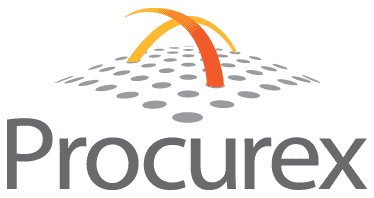
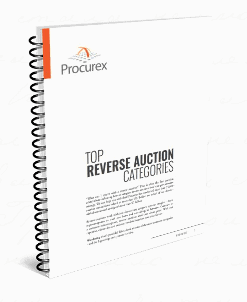

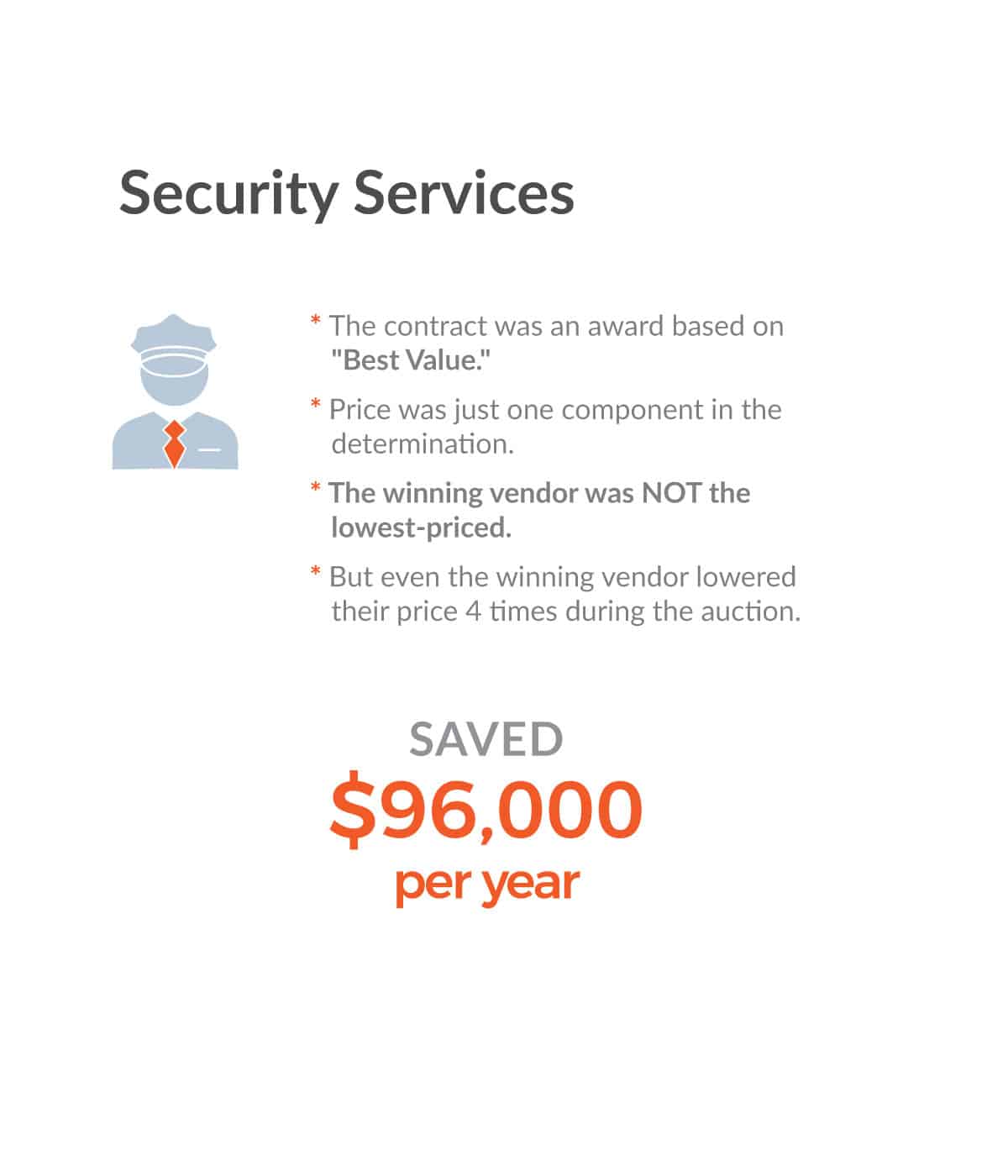
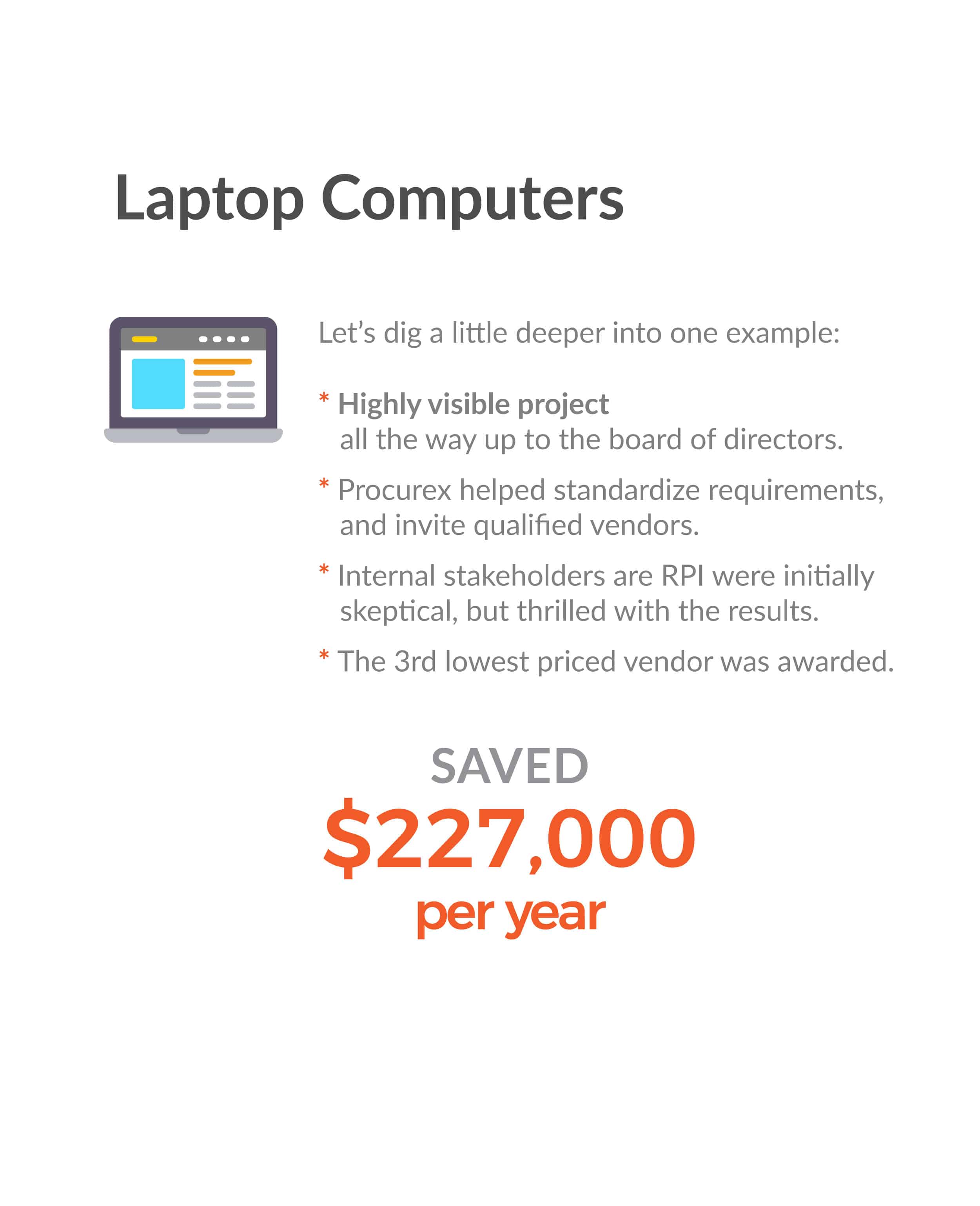
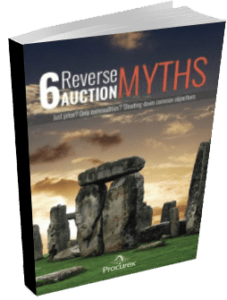
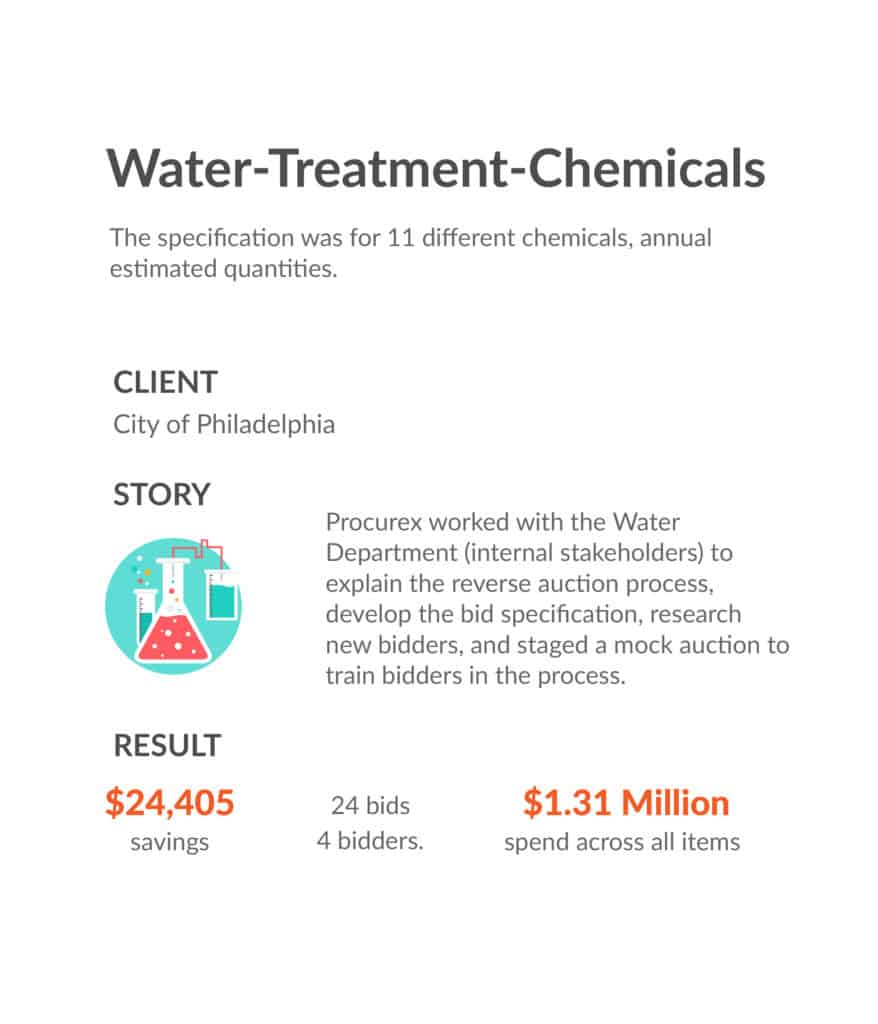
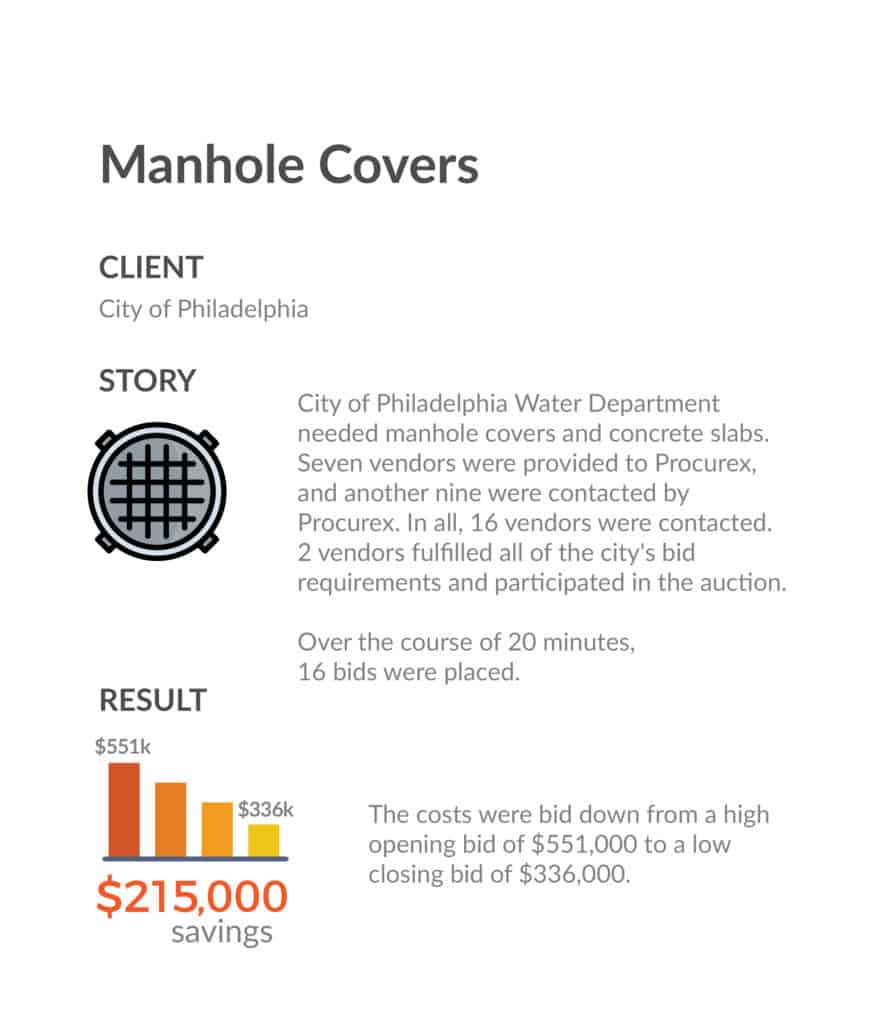
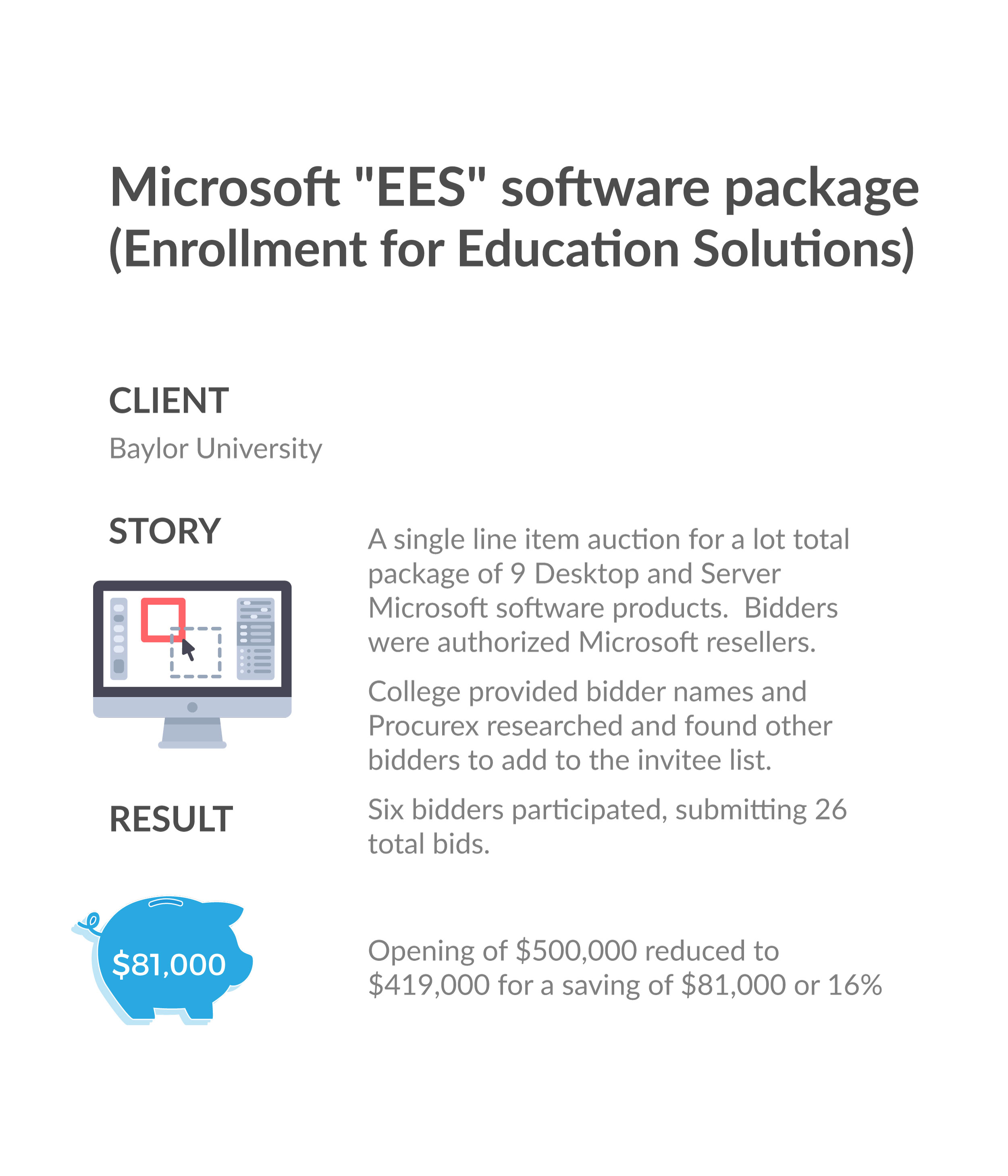






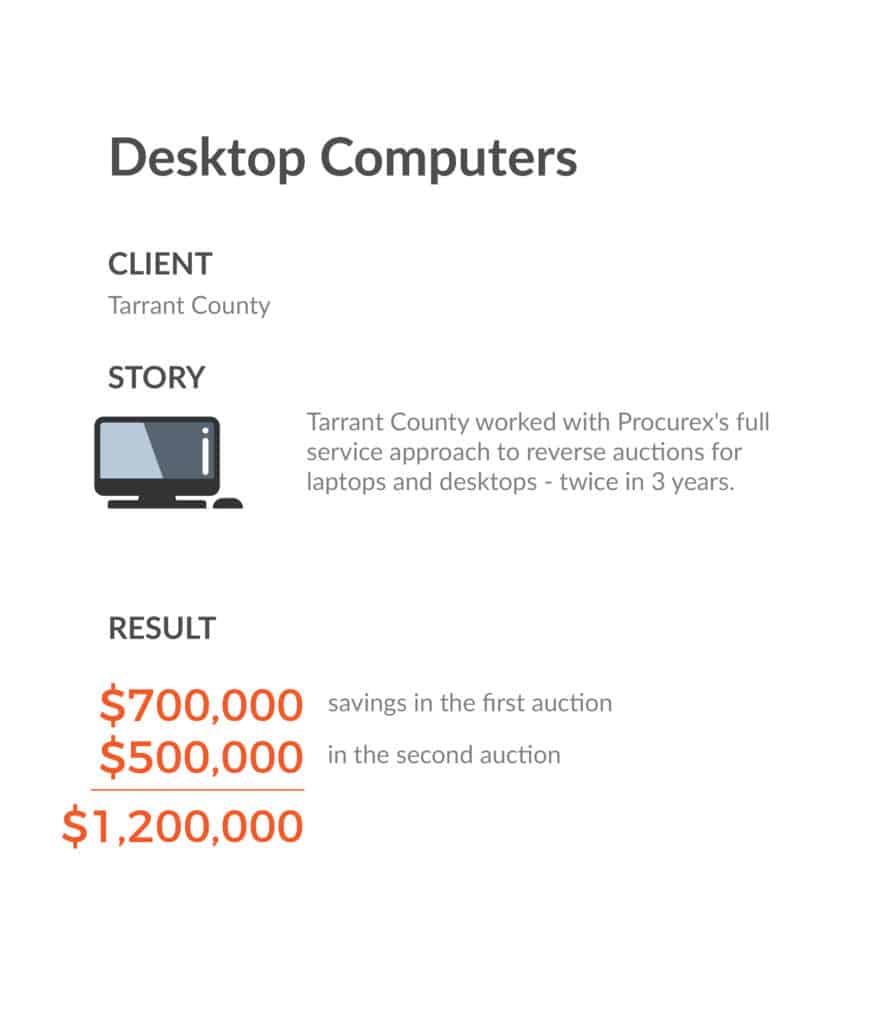





 Procurex interviewed IT and research stakeholders to help define a set of minimum performance requirements for the auction specification.
Procurex interviewed IT and research stakeholders to help define a set of minimum performance requirements for the auction specification.




